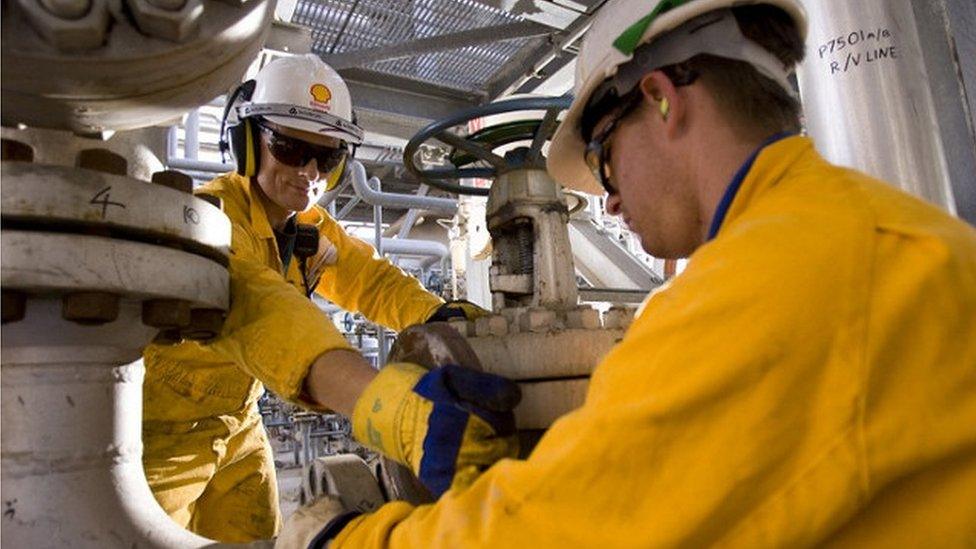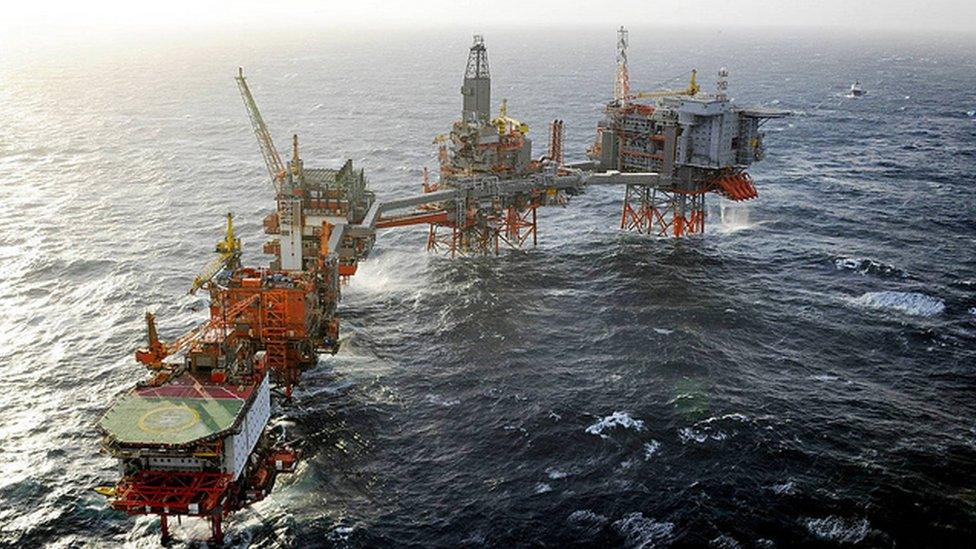Royal Dutch Shell sees profits jump as oil price rises
- Published

Royal Dutch Shell's profits surged by 37% in the third quarter of the year on the back of rising oil prices.
The Anglo-Dutch giant said earnings excluding one-off items on a current cost of supply measure (CCS), which strips out price fluctuations, hit $5.6bn (£4.3bn) from $4.1bn last year.
Rising oil and gas prices in the July-to-September period were the main driver of profits.
Shell joins rivals, including BP, in reporting strong results.
However, the figure was lower than a company-provided analysts' consensus forecast of nearly $5.8bn.
Shell's shares fell more than 2% in early trade.
"The figures were impressive, but given the rally in the oil market, and the solid figures from BP during the week, traders were left a little unimpressed with today's update," said David Madden, market analyst at CMC Markets UK.
On Tuesday, BP said its profits more than doubled in the third quarter to $3.8bn from $1.86bn a year earlier, its best quarterly result for five years.
After trading at about $67 a barrel at the start of the year, the price of Brent crude oil has risen steadily. It peaked last month at $86 a barrel before slipping back to about $75.
Royal Dutch Shell chief executive Ben van Beurden said: "Good operational delivery across all Shell businesses produced one of our strongest-ever quarters, with cash flow from operations of $14.7bn."
Shell said it had completed the first tranche of a $25bn share buyback programme that it announced in July.
The move fulfils a pledge that it made when it bought oil and gas exploration firm BG Group in 2016.
"Our strategy remains on track," said Mr van Beurden.
- Published30 October 2018
